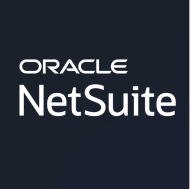

SAP ERP and NetSuite OneWorld are competitors in the enterprise resource planning (ERP) market. SAP ERP holds an advantage in industry-specific customization and comprehensive demand planning, while NetSuite OneWorld excels in global operations with strong multicurrency and virtual warehouse management capabilities.
Features: SAP ERP offers integrated functions like finance, inventory, and production in a robust database, highly customizable for specific industries. It provides comprehensive demand planning and automation. NetSuite OneWorld excels in multicurrency operations, offers virtual warehouse management, and has strong integration capabilities for global operations.
Room for Improvement: SAP ERP is costly with complex interfaces and challenges in external integration. Technical support is sometimes inefficient. NetSuite OneWorld lacks certain analytics features and users desire more robust production planning and integrated pricing models.
Ease of Deployment and Customer Service: SAP ERP offers on-premises and hybrid cloud deployment, requiring significant resources. Customer service is satisfactory but can delay technical support. NetSuite OneWorld’s cloud model enables quicker deployment but involves subscription management. Customer service generally receives good feedback, though complex implementations may require external consultants.
Pricing and ROI: SAP ERP is expensive, involving high licensing and maintenance costs, requiring long-term investment for ROI. NetSuite OneWorld is cheaper for smaller to medium businesses but can grow costly as they scale. NetSuite often provides quicker ROI due to its cloud-based cost structure.
As it is not a multimillion-dollar ERP system, ROI can be achieved within six months.
SAP ERP did provide value for money.
Their response is very fast, regardless of the language used, like Spanish, French, or Portuguese.
It was very quick, and we didn't have many tickets, but every time any issues arose, they were very quickly resolved.
It is not easy to justify something as high priority unless the system is completely down.
SAP technical support is very good.
It allows you to scale across various modules and functionalities without losing access to essential features, even if they are not used immediately.
The scalability of SAP ERP is excellent.
It is scalable when moving from one version to another or adding additional components like warehouse management.
It is the most stable feature on the Intuit side.
Production processes would be on hold without stability, so it is quite important that the software is very stable.
Stability-wise, SAP ERP is the best product among others.
The performance could be improved as this is a 100% software as a service platform.
SAP ERP has been left behind as they moved to S/4HANA with the HANA database.
I believe that SAP ERP needs to include AI functionality now, as I think it would be a significant change that could improve and enhance the product.
SAP ERP could improve by integrating additional components such as digital signatures and barcoding.
In Latin America, discounts can be as high as seventy percent.
Small and medium companies can struggle with the pricing.
The pricing for SAP ERP is medium but slightly on the higher side.
The multicurrency reevaluation offered by OneWorld enables consolidation from different branches, such as country or continent levels, making it a powerful feature.
The consistent integrations and real-time data analytics in SAP ERP significantly enhance the decision-making process by facilitating follow-ups and action points.
I find features such as robotic automation to be the most useful and valuable in SAP ERP.
SAP ERP is particularly strong in manufacturing, from production planning to plant maintenance, then Material Management itself, and managing warehouse management and inventory control.
| Product | Market Share (%) |
|---|---|
| SAP ERP | 11.2% |
| NetSuite OneWorld | 1.0% |
| Other | 87.8% |


| Company Size | Count |
|---|---|
| Small Business | 10 |
| Midsize Enterprise | 3 |
| Large Enterprise | 2 |
| Company Size | Count |
|---|---|
| Small Business | 30 |
| Midsize Enterprise | 31 |
| Large Enterprise | 77 |
We monitor all ERP reviews to prevent fraudulent reviews and keep review quality high. We do not post reviews by company employees or direct competitors. We validate each review for authenticity via cross-reference with LinkedIn, and personal follow-up with the reviewer when necessary.